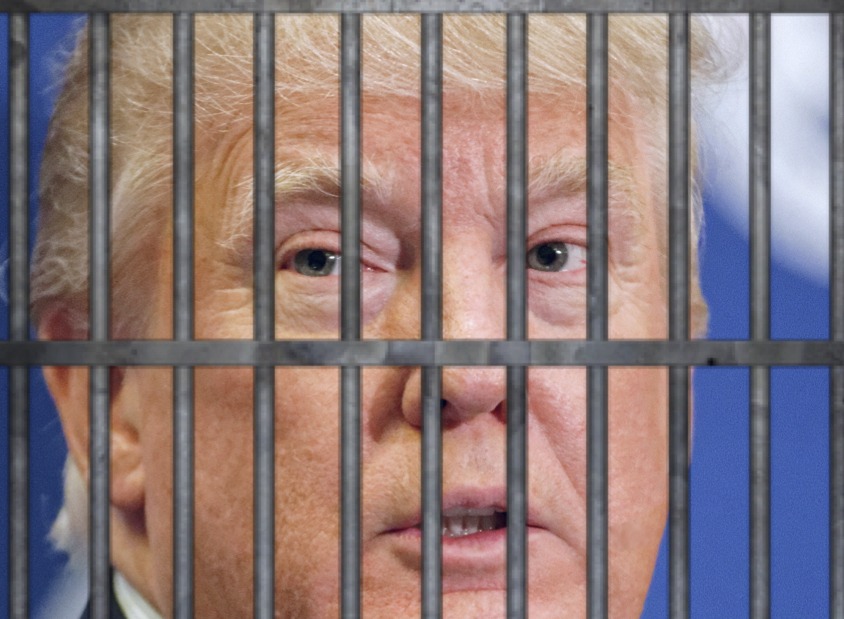You’re damn right Donald Trump committed treason

Over the weekend, Donald Trump disingenuously (and erroneously) accused the New York Times of committing “virtual treason” after it published a story about how the United States government is proactively fighting back against Russian election hacking. Since Trump was kind enough to bring it up, we should take a moment to discuss what treason actually is.
Whenever I write that Donald Trump (or anyone else connected to his Trump-Russia election scandal) may have committed treason, I get a flood of responses from people who insist that I’m wrong for suggesting as much, because “you can’t have treason without a declaration of war.” This feedback is well-meaning, but it’s also factually incorrect.
The most widely accepted legal definition of treason is when a United States citizen conspires with a foreign enemy government that is committing an act of war against the United States. When it comes to the Trump-Russia election conspiracy, the central question is whether the Russian government was committing an act of cyber war when it hacked into U.S. election systems in an attempt at sabotaging the outcome of the 2016 election. You can scour around yourself, but you’ll find very little if any U.S. legal precedent that defines what is or is not an act of cyber war, because it’s too new of a concept to have resulted in much case law.
The bottom line is this: if the Russian government was committing an act of cyber war against the United States when its hackers targeted our election, then any U.S. citizen who knowingly conspired with the Russians to carry out that goal was indeed conspiring to commit treason. If Donald Trump knew about the hacking when he signed off on the Trump Tower meeting, he committed treason. If others in his circle knew about the hacking when they were consorting with WikiLeaks, they committed treason.
Special Counsel Robert Mueller didn’t try to bring treason charges against any U.S. citizens. Then again, he didn’t bring criminal charges of any kind against any U.S. citizens for conspiring with Russia to alter the election. He declined to charge Donald Trump Jr with receiving gifts from a foreign entity on behalf of a campaign, or attempting to receive stolen goods, even though these were clear cut felonies that would have resulted in near-automatic convictions. Mueller has yet to explain why he chose not to do his job in the end. But the bottom line is that his decision is not an indicator of whether or not treason was committed, because he failed to do his job, period.
Here in the post-Mueller world, Donald Trump is all but automatically headed to prison once he’s out of office. The State of New York and the Feds at the SDNY will be fighting over who gets to arrest and try Trump first, on a whole host of charges. Will treason charges be brought against Trump? Probably not, considering that Trump committed so many other serious crimes that are so much more reliable at bringing convictions.
But the bottom line is that as best anyone understands the definition of an act of cyber war, Donald Trump and others around him committed treason in the most widely accepted definition of that word. Trump seems to understand this, which is why he keeps trying to weaponize that word against his adversaries. And when it comes to those who keep yelling that “you can’t have treason without a declaration of war,” those folks should go do their homework instead of misguidedly flooding the inboxes of political commentators who dare to use that word.
